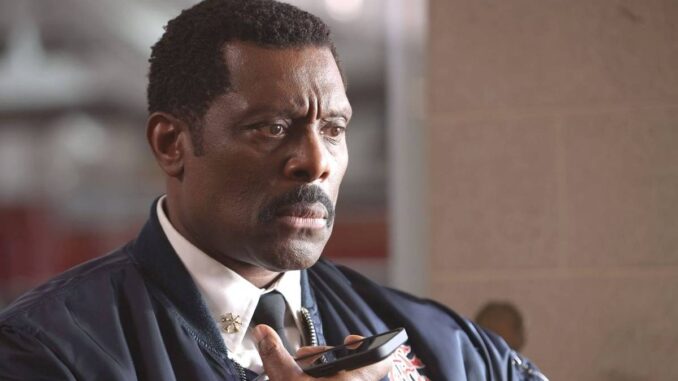
The Steel Spine Revisited: Eamonn Walker's Return and the Weight of Wisdom
Eamonn Walker, a name synonymous with quiet strength and unwavering moral compass, returning to the screen is not merely a nostalgic event; it's an opportunity to delve into the depths of experience, the enduring power of principle, and the subtle transformations that life etches onto a soul. His return, whether as a beloved character revived or a fresh face imbued with Walker's signature gravitas, carries with it a palpable sense of anticipation, a promise of profound reflection.
Imagine, for instance, Christopher Herrmann, the grizzled, paternal lieutenant from "Chicago Fire," stepping back into Firehouse 51 after a sabbatical spent volunteering in a disaster zone. The firehouse, the heart of his found family, welcomes him with open arms, but Herrmann is different. The lines around his eyes are deeper, the humor a little more subdued, the callouses on his hands even more pronounced. He still dispenses advice, still acts as the anchor for the younger firefighters, but his pronouncements are now tinged with the echoes of loss and the urgency of purpose. He's seen things that have shaken him, experiences that have hardened his resolve to protect the vulnerable and uphold the unwavering code that defines him.
His return wouldn't be about grandstanding heroism. Instead, it would be about the quiet, unassuming acts of leadership born from hard-won wisdom. Perhaps a rookie struggles with the psychological toll of a particularly devastating fire. Herrmann, no longer merely relying on textbook procedures, would share a fragment of his own vulnerability, a glimpse into the demons he's battled and the strategies he's employed to navigate the emotional minefield of the job. His words wouldn't be preachy; they'd be raw, authentic, and deeply personal, resonating with the rookie in a way that no lecture could.
Or consider a new character, perhaps a retired judge, hardened by years of presiding over injustice, now reluctantly drawn back into the fray to advise a young, idealistic public defender. Walker, channeling his inherent dignity, would embody the weary pragmatism of a man who has witnessed the best and worst of humanity. He wouldn't romanticize the law; he'd expose its flaws, its inherent biases, and the insidious ways in which it can be manipulated. Yet, he wouldn't preach despair. Instead, he'd offer a roadmap, forged in the fires of experience, for navigating the treacherous terrain of the legal system while clinging to the flickering flame of hope.
His wisdom wouldn't be delivered in dramatic courtroom pronouncements. It would be woven into the fabric of everyday conversations, offered during late-night deliberations, whispered during moments of doubt. He might advise the young defender to look beyond the legal statutes, to understand the human story behind the case, to find the common thread of humanity that connects them all. He'd teach her that justice isn't always about winning, but about fighting the good fight, even when the odds are stacked against her.
Ultimately, Eamonn Walker's return promises more than just entertainment. It offers a reminder that experience is a powerful teacher, that wisdom is often born from hardship, and that the quiet strength of a principled individual can be a beacon of hope in a world often shrouded in darkness. His presence on screen is a testament to the enduring power of character, the unwavering pursuit of justice, and the enduring human capacity for empathy and compassion. He reminds us that even in the face of adversity, the steel spine of moral integrity can be the most powerful weapon of all. His return is not just a celebration of an actor; it's a reaffirmation of the values we strive to uphold, the ideals we aspire to achieve, and the enduring power of the human spirit.
